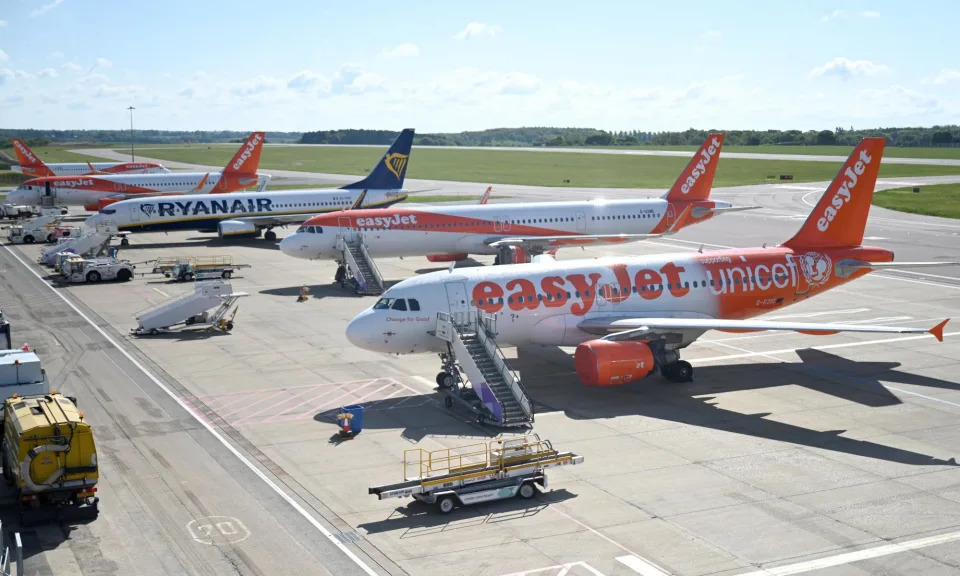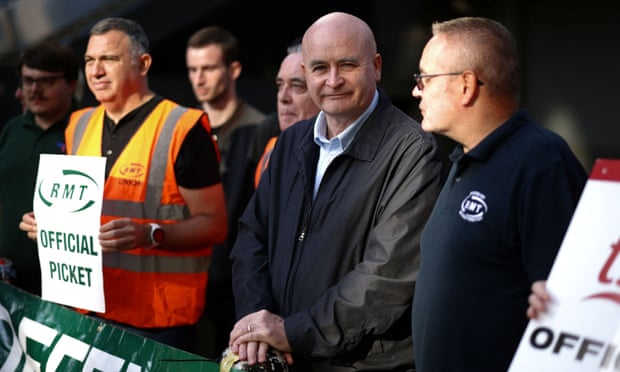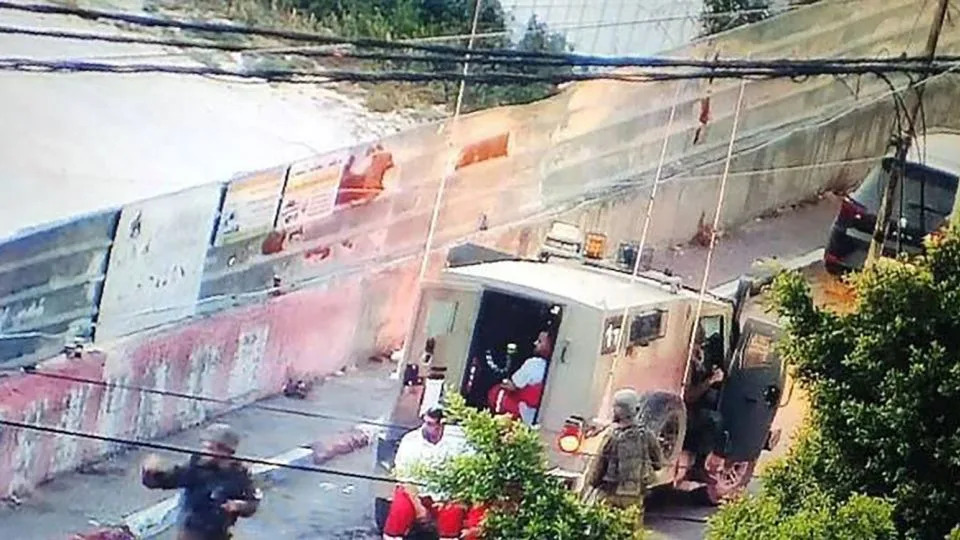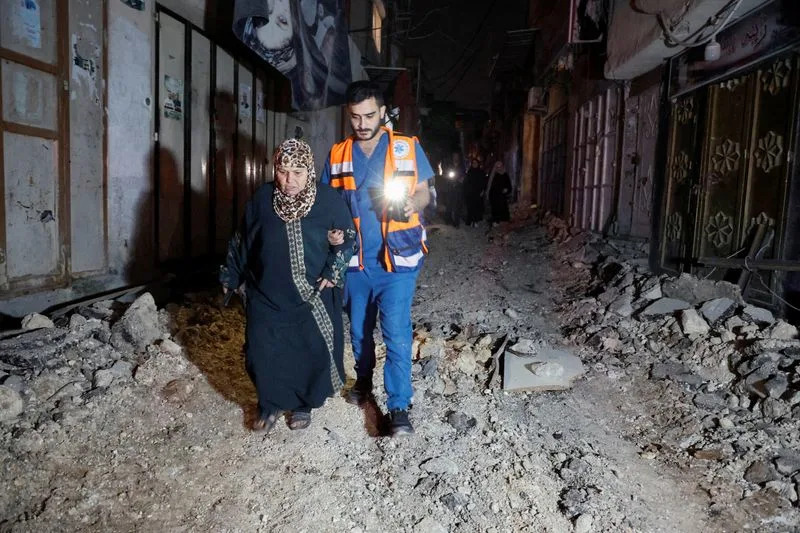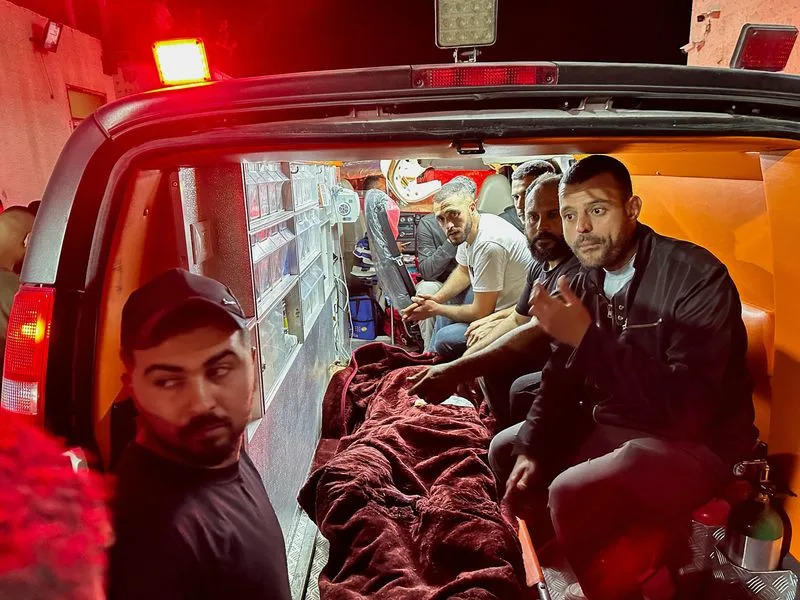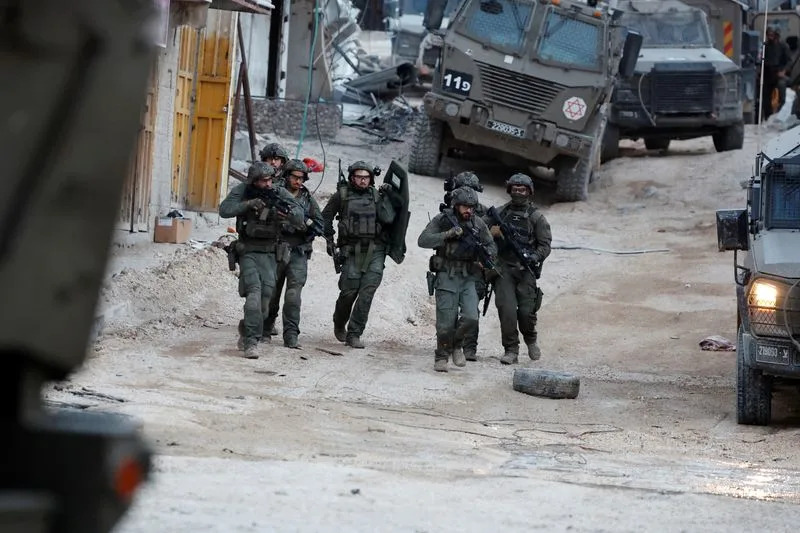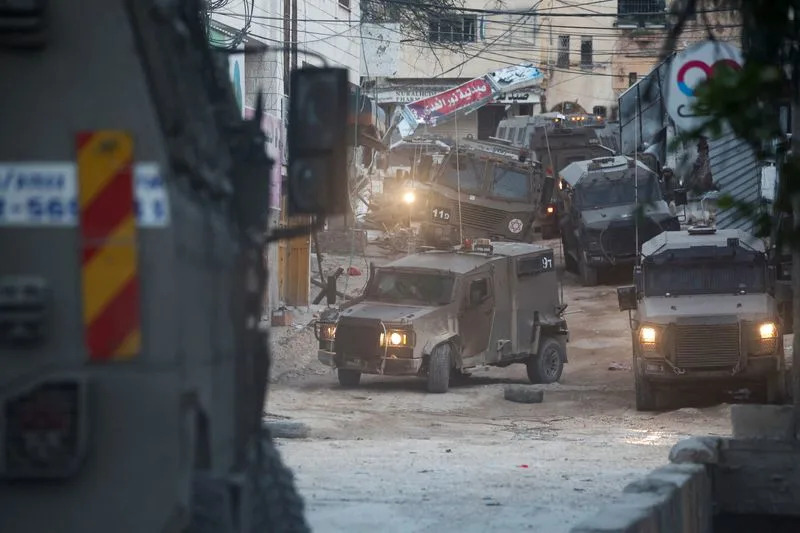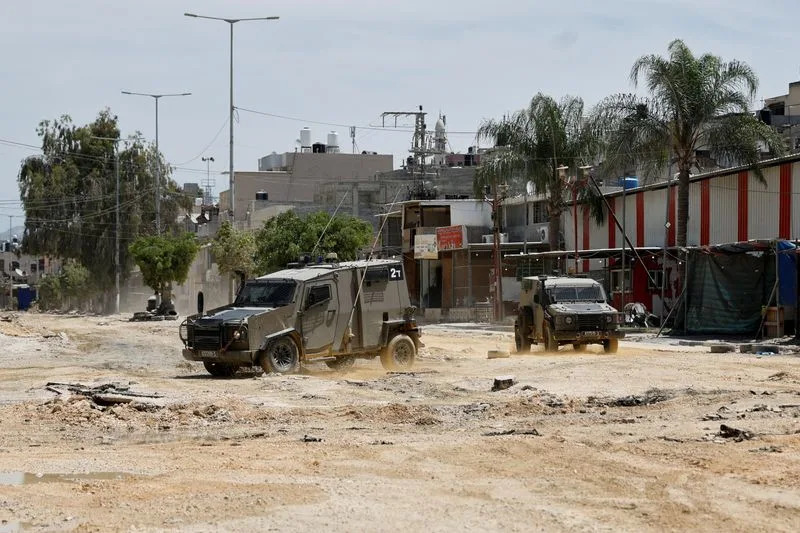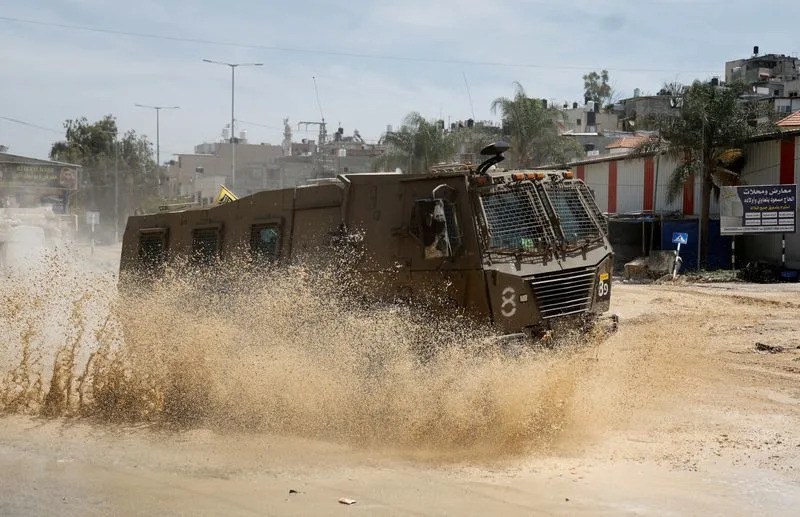Besieged Gaza Strip running short of bread and drinking water
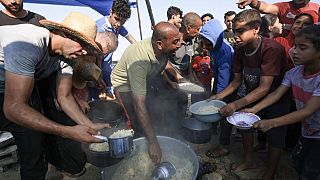
Bakeries in Gaza are running out of bread, drinking water is being rationed and power outages are leaving people without charged phones, making it difficult to connect with friends and relatives.
The Israel military's aerial assault and the government's total blockade of the Gaza Strip is stripping Palestinians of even basic needs.
''We are putting a complete siege on Gaza. No electricity, no food, no water, no gas – it’s all closed,” Israeli Defence Minister Yoav Gallant said soon after the deadly Hamas attack on Israel on 7 October.
Israel's war with the militant group has upended the lives of more than two million people, and killed almost 6,500 civilians, according to Palestinian authorities.
This week, Tel Aviv allowed 54 trucks carrying UN supplies of water, food and medicine to enter Gaza from Egypt through the Rafah border crossing.
The UN Secretary General, Antonio Guterres, told a peace summit in Cairo that what has been delivered is not enough.
''The people of Gaza need a commitment for much, much more – a continuous delivery of aid to Gaza at the scale that is needed,'' Guterres said.
Call for humanitarian ceasefire
He called for a humanitarian ceasefire to rescue Gaza from what he described as a ''godawful nightmare''.
In the Jan Younis refugee camp, people wait in long queues to buy bread. Some of the people living there are displaced from northern Gaza.
One of them, Ibrahim Sorour, said about 80 people are living inside one house.
He desribed the difficulties he has encountered buying bread.
''Every day I come from 4am and wait five hours until I get my share of bread. Every day I hear news of bombing next to bakeries, in the streets, or even in ordinary homes and this makes me afraid to go out.
''From my house, even if there is no bombing, I leave the house at dawn before daylight, and then I hear the sound of reconnaissance planes that are always flying above us. For me, I feel more afraid of this sound that makes me feel that I am always under surveillance. This is real horror, but there is no alternative. We need food and bread,'' he said.
Many Palestinians who followed Israel's orders to evacuate northern Gaza and move south left behind all of their belongings.
''We fled from our homes and did not take anything with us,'' Shifa Tabsh said.
''The next day we learned that our house had been destroyed, and now we have absolutely nothing. No shelter, no mattresses, no pillows, nothing.''
With fuel banned from entering Gaza, there are frequent power outages; drinking water is being rationed.
Saeb Laqan, from the Khan Younis Municipality Water Department, said the Gaza Strip residents are facing a humanitarian catastrophe.
''There is no water to pump into pipes, neither through wells nor distribution at all. We have zero fuel stocks, and there is also no electricity. Therefore we are facing a humanitarian catastrophe if the world and everyone does not intervene,'' he said.
Yair Lapid, who served as the premier in the Israeli coalition government, has called on international media not to present stories from both sides of Tel Aviv's Gaza attacks

REUTERS
Yair Lapid, leader of Yesh Atid party, delivers a statement in Jerusalem / Photo: Reuters
Former Israeli Prime Minister Yair Lapid has accused international media outlets of displaying bias in their reporting on the Israeli-Palestinian conflict, favouring the Palestinian group Hamas over Israel.
“If the international media is objective and shows both sides, it serves Hamas,” Lapid said Sunday.
“My argument is that the media cannot just claim to bring both sides of the story. If you do that, you are only bringing one — Hamas’s side,” he said, noting “it is an insult to the victims, including the Palestinians.”
“It is an insult to the core idea of journalism,” Lapid added.
Noting that he worked as a journalist for 31 years, Lapid said “I have no problem with criticism of Israel. But when you know that one side lies and one side makes every effort to verify the facts, the least we can expect is that you don't give a never-ending platform to the lies.”
Israel launched a relentless bombardment campaign against Gaza following a surprise attack by the Palestinian group Hamas on October 7, putting the enclave’s residents under total siege and a blockade of food, fuel and medical supplies.
Nearly 7,200 people have been killed in the conflict, including at least 5,791 Palestinians and 1,400 Israelis.
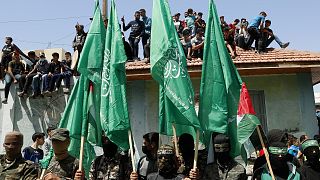
By Mared Gwyn Jones
When Hamas won the Palestinian legislative elections in January 2006, Europe had a problem.
The Palestinian democracy it had helped build after the 1993 Oslo Accords delivered a result it was deeply uncomfortable with - electoral victory for a group it considered terrorists.
The West immediately boycotted the democratically elected Hamas-led government until it agreed to recognise Israel and renounce violence. Hamas refused and went on to take control of the Gaza strip in 2007.
The European Union has since been one of the biggest donors of critical aid to Palestinians in Gaza and the occupied West Bank, propping up the local economy and preventing its people from plunging into poverty.
But the EU has done this while maintaining a strict policy of 'no contact' with Hamas, refusing to engage with the militant group and channelling aid to Gaza through United Nations (UN) agencies and other organisations it considers outside Hamas’ orbit in order to side-step the government.
In its latest decision in a botched response to the war, the European Commission on Saturday tripled its humanitarian support for Palestinians to €75 million euros. Meanwhile, it is “reviewing” approximately €396 million in unspent development aid to ensure no EU money has inadvertently come into contact with Hamas.
Euronews spoke to two experts deeply divided on the EU’s decision to isolate Hamas, and its impact on the bloc’s diplomatic leverage in the region.
EU aid a "lifeline" for Palestinians
For Dr Matthew Levitt, director of the Reinhard programme on counterterrorism and intelligence at the Washington Institute, the West’s boycott of Hamas was the only viable response to the group’s electoral victory.
"People have the right to vote for whoever they want, but it comes with consequences," Dr Levitt told Euronews.
"Hamas was never part of the solution. We must also remember that the EU and its allies did maintain lines of communication with Hamas leaders after they won the 2006 elections, but it was important for the West at that time to establish how it dealt with terrorists," he added.
The EU and its Western allies’ continued provision of aid was - and still is - a lifeline for vulnerable Palestinians, providing for their essential basic needs, Dr Levitt said.
The EU contributes at least €82 million to UNRWA, the UN agency providing essential services to Palestinian refugees, every year, and in 2022 alone invested €145.35 million in development aid to pay the salaries and pensions of Palestinian civil servants, invest in hospitals and support vulnerable households.
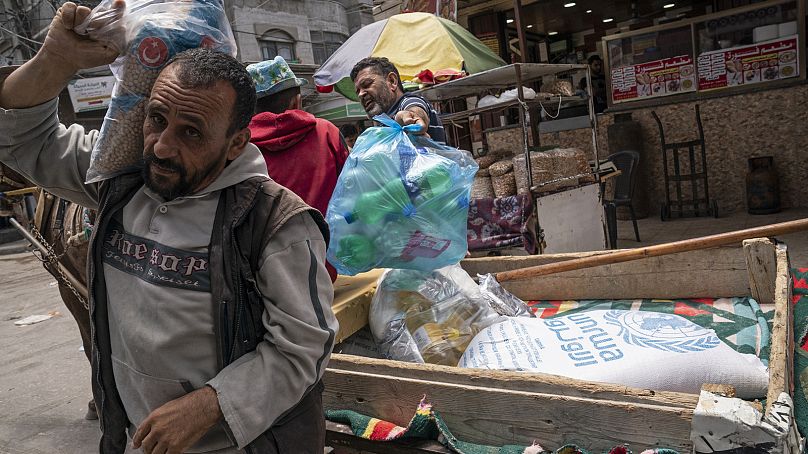
But Dr Tamet Qarmout, head of public administration at the Doha Institute for Graduate Studies, who worked in Gaza for the United Nations Development Programme (UNDP), believes that EU aid has also perpetuated a state of Palestinian reliance while "relieving" Israel of its responsibilities.
"Palestinians have been drip-fed aid in order to survive, when what they need is an operation to survive. But no one has been willing to make that decision for them," he explained.
Dr Qarmout also believes that by isolating Hamas, Europe became even more beholden to Israeli interests, allowing Israel to continuously scupper the peace process.
"While generous donors have undoubtedly helped the Palestinian people, they have also paid the price of Israeli occupation, and this cynically and sadly sustains occupation," he added.
"UN agencies also became agents to Israel's security apparatus, but also came under immense pressure because Hamas opposed the arrangement," he said.
Dr Qarmout also told Euronews that because of UN aid workers' role in sustaining the western boycott of Hamas, they were eventually pressured "to share information with Hamas" on what came in and out of the Gaza strip, meaning aid became increasingly politicised.
"The key question Europe needed to ask itself at the time was how to effectively use aid to ensure both parties respected the peace process, on both sides. But the discussion was never opened in European politics, as if it were a taboo," he added.
Former European leaders, including former British premier Tony Blair, have in the past expressed regret at the decision to immediately boycott Hamas in 2007, saying the international community should have engaged the Islamist militants in dialogue.
Sabotage of aid 'possible'
But Dr Levitt says that the West had to establish clear red lines on Hamas.
He also believes that while the immediate priority for the EU right now should be to ensure essential humanitarian aid continues to reach Gaza, it is also right to investigate potential diversion of funds to Hamas.
"There have long been issues of aid to Palestinians being misdirected, in particular EU aid," Dr Levitt said. "The reality is that Hamas controls the Gaza strip, and so the assumption must be that some of the aid coming in is being misdirected. The ability to divert or skim off the top is real."
"There are very good reasons to reassess how aid is delivered, but not whether aid should be delivered," he added.
Members of the European Parliament have in recent years raised concerns about the possible diversion of European funds by Hamas. In a 2021 written question to the European Commission, Swedish MEP Charlie Weimers questioned whether EU funds in the value of €1.7 million to the Islamic University of Gaza (IUG) - which has close and well-documented links to Hamas - run counter to the bloc’s anti-terrorism commitments.
In her response, the then-European commissioner for education Mariya Gabriel said the Commission had cancelled grant agreements with IUG in 2021 after it refused to agree to a clause stipulating beneficiaries must ensure no link to persons on the EU’s list of restrictive measures.
Last week, the Israeli Defense Forces targeted the IUG with airstrikes, claiming it was being used as a "training camp" for Hamas militants.
But Dr Qarmout says that despite these claims, "no shred" of evidence or intelligence has been produced to demonstrate any claims that EU funds are being diverted by Hamas, whilst there is plenty of evidence of Israel targeting donor-funded projects in Palestinian territories.
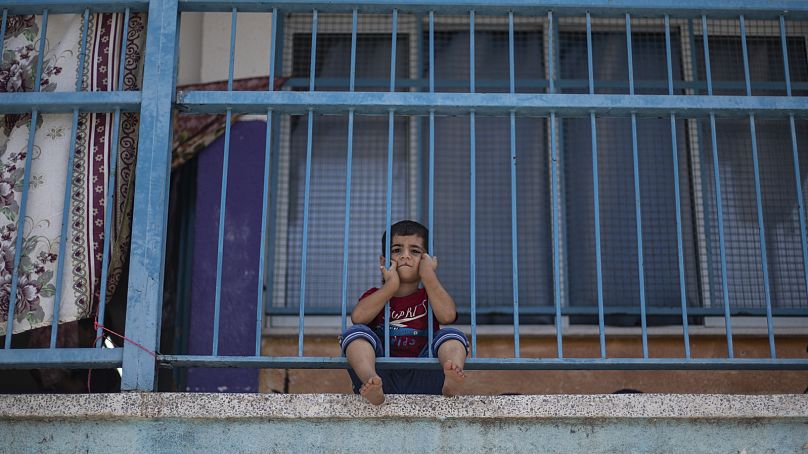
An uptick in Israeli demolitions of Palestinian infrastructure, including EU-funded projects, was seen in 2021, prompting EU and UK representatives to visit affected communities in the West Bank.
In a 2021 statement, the European External Action Service (EEAS) said 150 donor-funded structures were destroyed by Israeli authorities that year, displacing 656 people, including 359 children, across the West Bank.
Israel has also targeted water wells and pipelines during conflicts, including the 2021 11-day war, despite many water projects being backed by foreign donors.
Although the EU has repeatedly condemned attacks by Israeli settlers against Palestinians as well as targeted bombardments of critical Palestinian infrastructure, it has never investigated how Israel could have intentionally undermined the EU's own development projects in the region.
On Monday, the European Commission announced it would step up its efforts to bring aid to Gaza by sending flights of UNESCO humanitarian supplies to Egypt, as international efforts to open humanitarian corridors continue.
/cloudfront-us-east-1.images.arcpublishing.com/tgam/HHM3MVTVGNLPJH7L5PO6O4MR6I.jpg)


